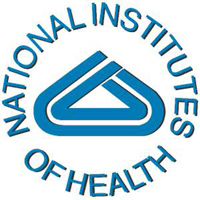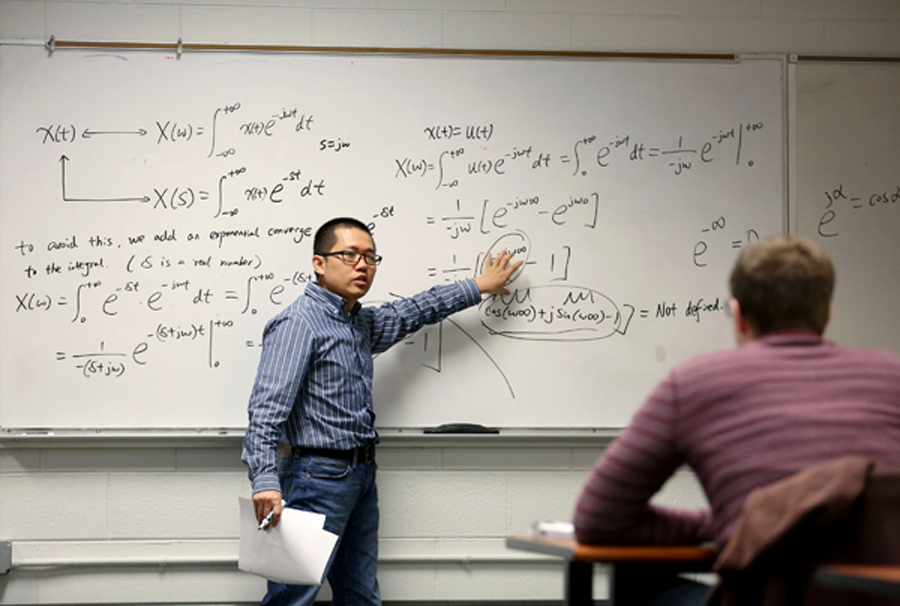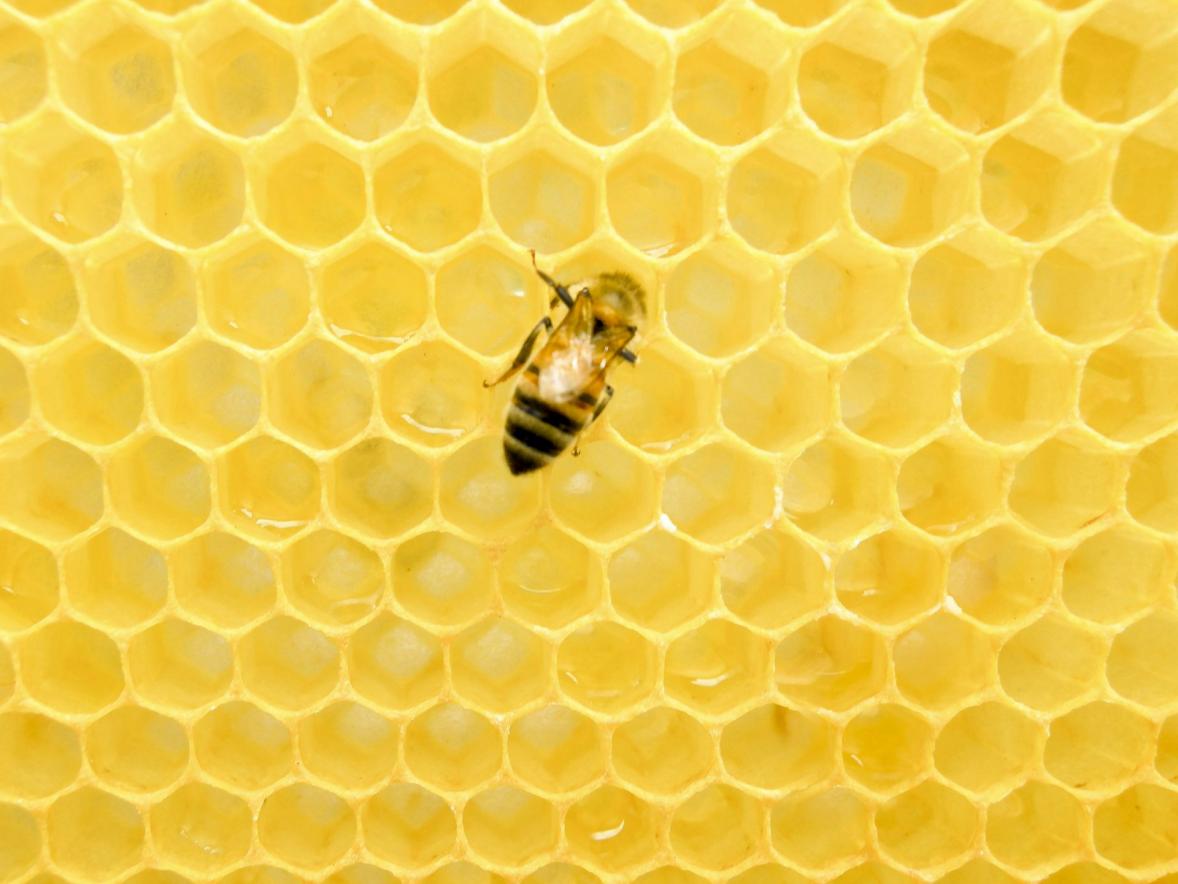Liang Zhan hopes that someday his research can help save lives.
One of the lives he couldn’t save was that of his grandmother, who died in 1996 in China with Alzheimer’s disease. “It’s part of the reason I wanted to devote my life to brain research,” Zhan said.
 The University of Wisconsin-Stout assistant professor is one of three principal researchers who received a $425,000 National Institutes of Health federal grant in 2017 to do just that. The NIH grant is through the National Institute on Aging.
The University of Wisconsin-Stout assistant professor is one of three principal researchers who received a $425,000 National Institutes of Health federal grant in 2017 to do just that. The NIH grant is through the National Institute on Aging.
Well into the first year of their project, Zhan and his research partners from the University of Illinois at Chicago and University of Southern California are hoping to unlock clues to early detection of Alzheimer’s.
The goal of the study is to determine how brain networks are altered by the disease, possibly opening up clues to early detection. “We’re hoping to identify the noninvasive imaging biomarkers for Alzheimer’s progression,” Zhan said.
The brain can be divided into hundreds of regions that communicate with each other. Some of the regions will activate simultaneously for the specific task or status, he said.
The researchers’ model is based on how social science research is conducted, studying community structure to identify a possible imaging biomarker for the Alzheimer’s progression, Zhan said.

“This hasn’t been done before in Alzheimer’s research. Hopefully these results can be used clinically,” he said.
The researchers’ mathematical model will be cross-validated using two independent study groups, one from the Alzheimer's Disease Neuroimaging Initiative and another from UW-Madison’s Alzheimer’s Disease Research Center, totaling 665 study subjects.
Zhan’s contribution to the two-year project will be reconstructing the brain networks from brain MRI data.
“We’re trying to get as much data as possible. We need a smart way to combine data sets and build a novel mathematical framework,” he said.
His Illinois-Chicago counterpart, Alex Leow, a medical doctor, will analyze the data from a medical perspective. The USC researcher, Paul Thompson, will provide computational input.
The researchers are using data from all three types of MRI imaging tests.
They already published several preliminary papers on the project in 2017.
The roots of the project go back about 10 years. The professors did research together in graduate school at UCLA — University of California-Los Angeles.
Zhan, who emigrated in 2007 from China to the U.S., earned a doctorate in 2011 in biomedical engineering from UCLA. He has a master’s in bioengineering and a bachelor’s degree in electrical engineering.
He teaches in the engineering and technology department at UW-Stout in computer engineering.
The professors have proposed a second grant involving more people and collaboration with a hospital.
“We hope we can get a high-impact article published. We already have four papers started,” he said. “I think we’re on the right track.”
###
Photo
Liang Zhan, who has a Ph.D. in biomedical engineering, teaches computer engineering in UW-Stout’s engineering and technology department.





